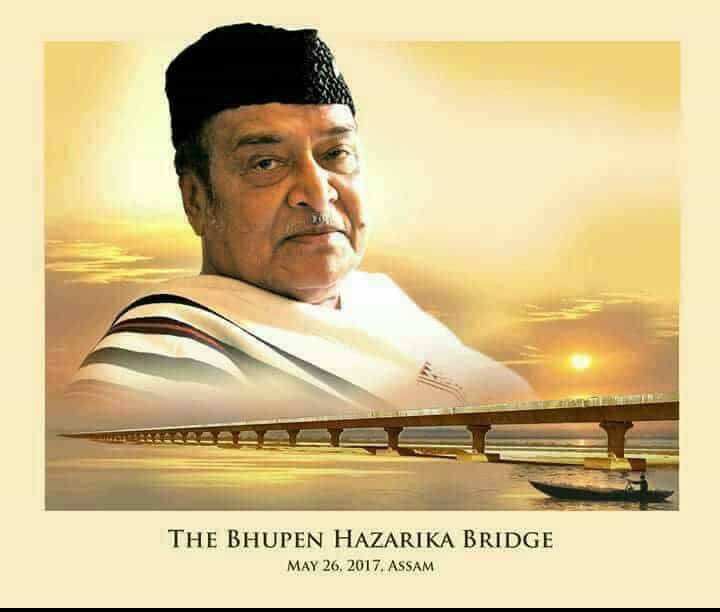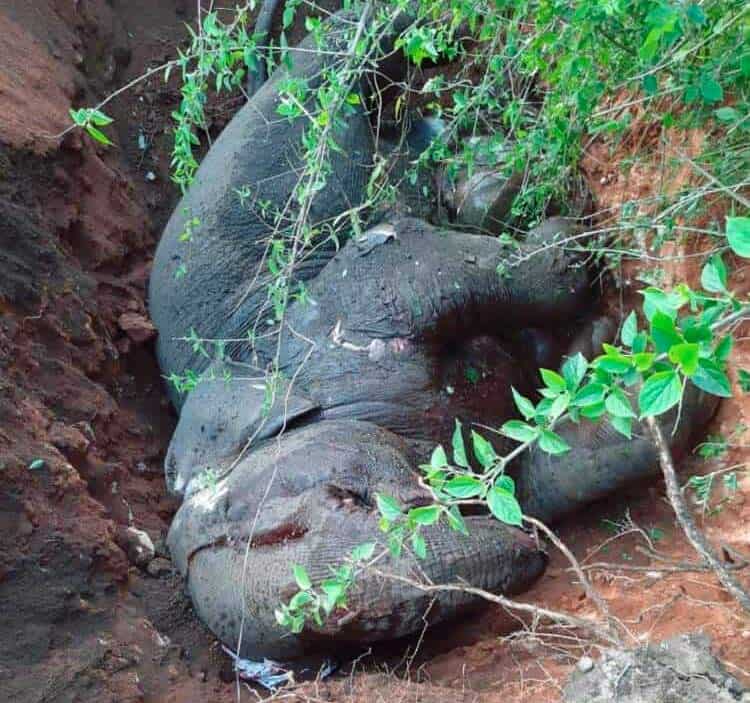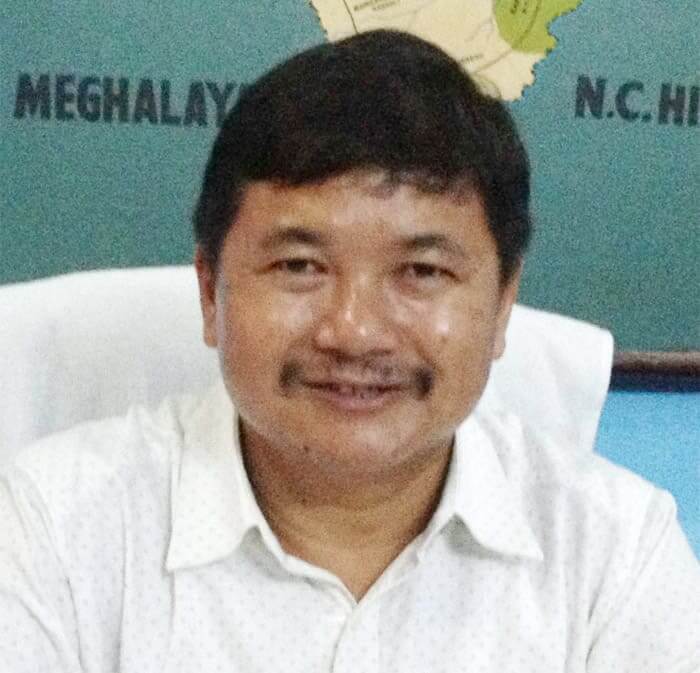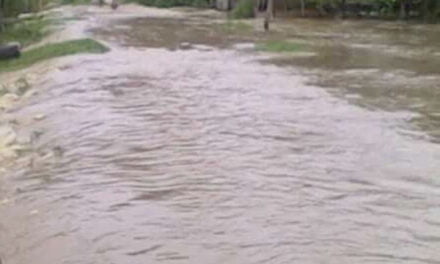Guwahati: Indian Prime Minister Narendra Modi on 26 May inaugurated and named the country’s longest river bridge in the far eastern region, over the Lohit river, a major tributary of mighty Brahmaputra. PM Modi, arrived in the morning from New Delhi, dedicating the Dhola-Sadiya bridge to the nation and naming it after legendary Assamese cultural personality Dr Bhupen Hazarika. “The road connectivity will see a major transformation as this bridge will fill a huge connectivity gap that has existed in the region. It will also enhance connectivity between Assam & Arunachal Pradesh, and opens the door for economic development on a big scale,” Modi said.
The Prime Minister addressed his remarks to a rally at Dhola in Assam. The bridge is expected to reduce the distance from Rupai (Assam) on NH- 37 to Meka-Roing (Arunachal Pradesh) on NH-52 by 165 km and thus give a major boost to overall economic development in the region. PM Modi added that the infrastructure along with road & rail connectivity is extremely important for development.
“The effort of the Union government is to fulfil the dreams & wishes of the people,” Modi said. Present at the dedication was Assam governor Banowarilal Purohit and the State chief minister Sarbananda Sonowal. The Prime Minister said that the Centre was also placing great emphasis on the development of waterways in the region. Modi asserted that the eastern and north-eastern parts of India have the greatest potential for economic development.
The enhanced connectivity between the region and other parts of the country, and also good communication linking the region with the economy of South-East Asia remains the priority for the Centre, he declared.
Constructed with a budget of rupees 950 crore and connecting Assam with Arunachal, the Dhola-Sadiya bridge is expected to change the lives of thousands of families. Moreover, it is assumed that the 9.16 km river bridge would fulfill a vital requirement in terms of India’s defence as it is only 100 km away from the McMahon Line separating India from Tibet (now under Communist China control).
A number of individuals along with some civil society groups earlier urged PM Modi to name the river bridge after the music maestro, Dr Bhupen Hazarika. The Patriotic People’s Front Assam (PPFA) and the Arunachal Pradesh Literary Society (APLS) separately advocated for the cause with an aim to honour the singer with an immortal voice as “he was a man of assimilation embracing various community & tribes of the region like a golden thread.”
The PPFA argued that Dr Hazarika was born at Sadiya on 8 September 1926 and he made the first film titled ‘Meri Dharam Meri Maa’ representing Arunachal. Preferred to declare himself as a Jajabor (wanderer), Hazarika tried his hand in various field of creations as a poet, lyricist, singer, music composer, author, journalist and filmmaker. In fact, he was the most visible individual from this region for many decades. The APLS pointed out that Hazarika, who died in 2011, worked relentlessly for unity & integrity for all castes, creeds and religions through his songs and music.
He is hailed as the uncrowned king of the region’s cultural world. His songs continue to be popular even today as those contain humanity above all.
Hazarika received a PhD in mass communication (1952) from Columbia University, New York.
The bard of Brahmaputra was equally popular in mainland India along with Bangladesh, Nepal and Pakistan. Hazarika was conferred with Padamshree (1977) and Padma Bhushan (2001) besides Dadasaheb Phalke Award (1992), the first and only one from northeast India to receive the honour until today. The child prodigy sang and performed in ‘Indramaloti’, the second Assamese talkie film made by Jyotiprasad Agarwalla in 1939.
Hazarika penned thousands of lyrics and rendered his crisp voice in nearly 1500 songs. He had composed music for 36 Assamese films, many Bengali (Jiban Trishna, Jonakir Alo, Mahut Bandhure, Kari o Komal, Ekhane Pinjar, Dampati, Chameli Memsaab etc) and Hindi (AAOPEk Pal, Rudaali, Papiha, Darmiyaan, Daman, Gajagamini etc ) films. As a director, some of his outstanding Assamese films include ‘Era Batar Sur’ (1956), ‘Shakuntala’ (1960), ‘Pratidhwani’ (1964), ‘Lotighoti’ (1967), ‘Chick Mick Bijuli’ (1970), ‘Mon Projapati’ (1978), ‘Siraj’ (1988) etc. He won the Indian President’s award for ‘Shakuntala’, ‘Pratidhwani’ and ‘Lotighoti’ as a film maker.
Hazarika was awarded with best music director award for ‘Chameli Memsaab’ in 1976. It was the first national award in music direction for the Assamese film industry. The government of Assam conferred two prestigious honours (Shrimanta Shankardev Award 1988 and Asom Ratna Award 2008) on Hazarika. Asom Sahitya Sabha, the highest literary forum of Assam, offered the coveted post of the President to him in 1993. For a five year term Hazarika was appointed as the Chairman of Sangeet Natak Akademi in 1999 and was also elected to Assam State Legislative Assembly in 1967.
Soon after the Chinese aggression in 1962, Hazarika visited the Kameng locality of Arunachal and created his eternal lyrics ‘—— Aji Kameng Simanta Dekhilo, Dekhi Shatrur Pashutta Chinilo —– (Seen today the Kameng border and realized the barbarity of enemies meaning Red China) ‘ to pay homage to the soldiers, who sacrificed their lives in the war. He also advocated for a watchful force at the China border for the security of the nation.





